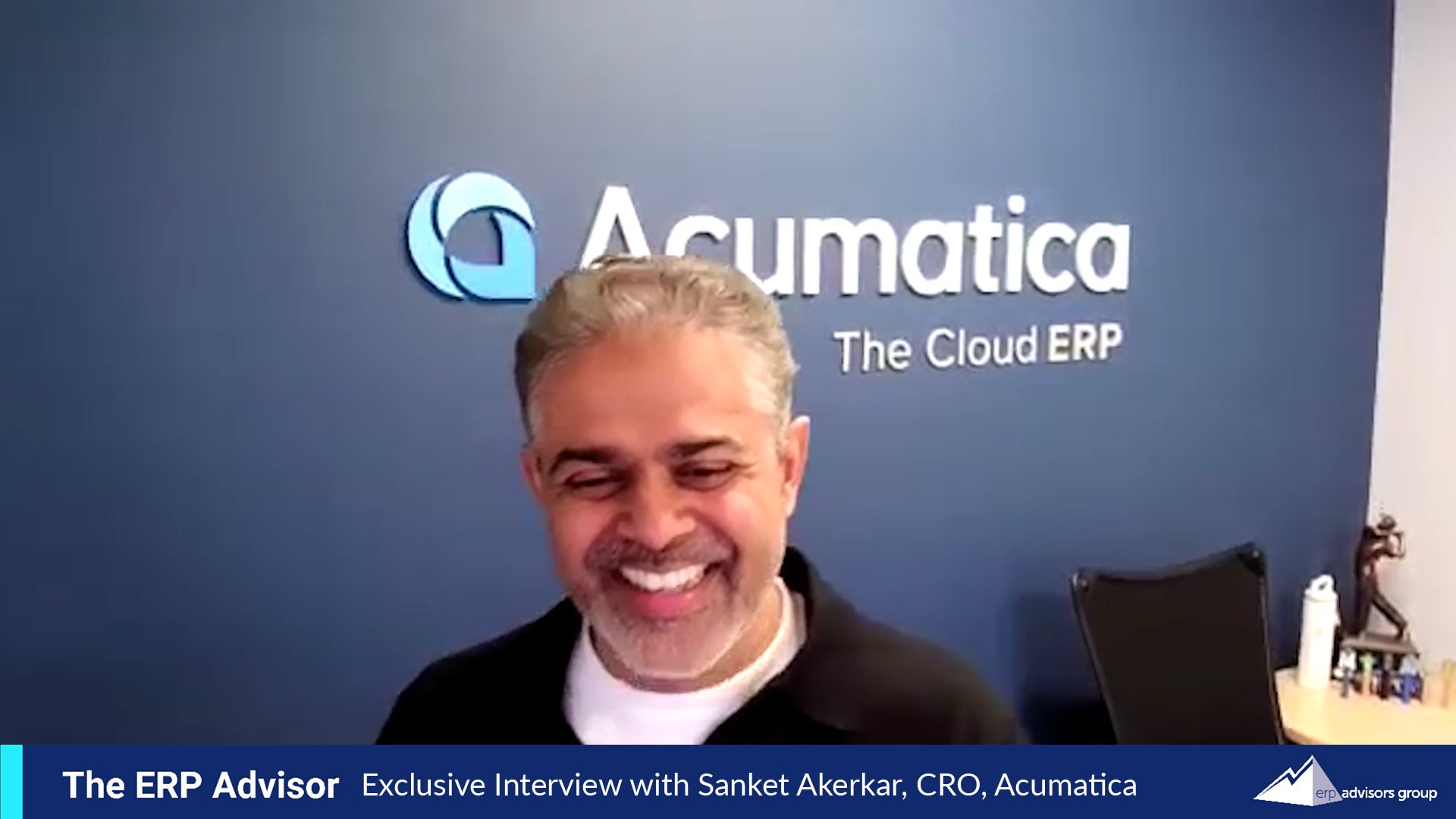![]()
Private equity-backed companies implementing a platform strategy can face complexities when selecting a single ERP. How can Private Equity firms define the best ERP strategy for their portfolio companies? And how can they overcome the barriers to a successful implementation, especially when migrating two or more companies into a new ERP simultaneously? In this episode of The ERP Advisor, Shawn Windle reviews real case studies from our PE client experiences and the successful practices that helped each achieve a successful go-live.
ERP Implementation Case Study Series: Private Equity Platform Companies
Private equity platform companies face some unique requirements when confronting an ERP implementation. Strategizing for the portfolio’s best interests while balancing the private equity’s exit strategy and holding period can complicate an ERP decision. Fortunately, there are best practices in place that can help private equity platform companies select and implement the right ERP to balance strategy with costs, risks, and valuations.
Why Do Private Equity Platform Companies Consider ERP Upgrades?
Not all Private Equity companies invest in their portfolio company's software. However, when they do, PE firms typically evaluate three major factors when considering an ERP investment: timeline, standardization of processes, and the overall benefit to the companies.
- Timeline: They need to have a clear roadmap for the length of the project, whether short- or long-term, to determine project investment across resources.
- Standardization of Processes: With a vast portfolio of companies, PE firms must determine how their technology stack will work across the portfolio, not just within a single business.
- Company Benefit: The PE firm must recognize if an ERP investment is REALLY the best thing to do for the company. With so many opinions circulating within their acquired companies, they need to identify the impact such a transformation would have.
We have seen fewer PE-directed ERP acquisitions recently because of higher interest rates. Recent economic factors in 2023 and 2024 have prevented as many PEs from plunging into a major ERP investment or from even making some planned acquisitions. However, we predict a return to the ERP market for investors once interest rates cool off.
Why are Portfolio Company ERP Selections So Complicated?
Every ERP implementation is complicated, but PE implementations add additional layers to the process. The PE firm wants to balance their needs across the entire portfolio yet ensure their investment is set up for future success, meaning, future acquisition.
In some situations, the PE firm chooses to undergo an ERP software upgrade with the understanding that some employees may leave the company as a result of cultural shifts in the “NewCo.” Successful ERP projects hinge on the “good” people taking responsibility for the change. But if you only rely on one person to be the agent of change for the merger/acquisition as well as the ERP rollout, the project may be doomed for failure.
In addition to common implementation staffing issues, PE firms face unique requirements in determining the right technology strategy for their portfolio companies. At the core, you must understand that when you are going for an investment play that involves acquiring adjacent businesses, you must be cautious because the processes and requirements do not exist yet. When acquiring adjacent businesses or auxiliary services, we recommend selecting a strong, extendable platform. If a Private Equity acquisition selects the right software platform, they have options across a multitude of bolt-ons and modules that all have pre-built integrations, meaning they will have access to their data, all in one place. Ultimately, the best implementation strategy will vary case by case, but a platform strategy allows for greater flexibility.
Case Study #1: International Platform, Life Sciences Distributor and Manufacturer
The first company in our case study is an international life sciences distributor and manufacturer platform company, with around half a billion in revenue. This client was struggling because their system did not deliver the necessary quality reporting they needed for their portfolio.
From the beginning, the company’s CIO felt there was no way they could implement a single platform across all of their businesses. After careful consideration and evaluation, the client selected a tier 1 accounting system that could pull in all top-level accounting information across the entire business. The lead consultant knew they didn’t need to replace each portfolio company’s system with the same ERP and encouraged them not to replace all their ERPs unless it was absolutely necessary. In the end, when confronting a project like this, you have to look realistically at your team and resources on the client side to determine if you can really do this.
Case Study #2: Consolidated Employee Field Services Portfolio Company
Our next client is a consolidated thousand-plus-employee field services portfolio company. They came to ERP Advisors Group because they needed to standardize their processes within a new system and embed more automation to reduce future need for office personnel.
This client was unique in that they had to put a pause on their ERP implementation efforts due to a number of internal circumstances. During their implementation efforts, the client made a big bet on the presence of some key players within the company. Unfortunately, those key individuals ended up being unavailable for the project, which put the implementation at risk. The original plan for the project was to invest in a best-of-breed model, despite the bigger price tag. As the implementation dragged on, this model became very complicated, especially in regard to change management for field service employees. Without the right resources in place, the client chose to pause the project because they wanted it done right, not just done. Sometimes, this is the best decision a company can make for their future.
Case Study #3: International, Roll-Up of Specialized Manufacturers and Distributors in the HVAC Industry
The final client is an international, roll-up of specialized manufacturers and distributors in the HVAC industry. Going into the project, the business seemed set on a particular solution that was not necessarily the right fit. The business needed to evaluate the options available on the market in order to build its case for the right solution.
During the processes, it was vital to set expectations for the ERP implementation. Part of that is developing an understanding of the possible outcomes and preparing in case the project does not produce exactly what was expected. Keeping calm during project turbulence allowed the team to shift their focus and confront the problem head-on. In the case of this project, there were four businesses undergoing the effects of this digital transformation, but two were extremely picky and not on the same page as the others. In most ERP implementations, you will run into individuals who may resist the change because the software is different or difficult to use. This puts significant focus on having a sound business case. In the case of this project, the ERP needed to clean things up, provide standardization, and give them reporting and analytics capabilities, and in the end, it did just that. By effectively managing their people and identifying their core requirements, this client was able to manage project complexities and ultimately reach a successful go-live.
The Relationship Between PE Firms & Software Vendors
ERP vendors have a unique opportunity to foster strong relationships with private equity firms, especially those with grand expansion plans. There are opportunities for vendors to help platform companies develop their technology strategies and create long-lasting partnerships.
Relationships also come with pricing advantages, wherein the vendor can offer discounts to the clients with close one-on-one relationships. You as the client also have the leverage to negotiate with the vendor for a better deal, if you know the right levers to pull. Ultimately, it comes down to relationships and the fostering of those relationships to get the most out of your software negotiations.
Conclusion
Private Equity platform companies are constantly making moves to grow their investments and prepare their portfolios for acquisition. It can be difficult to align goals across multiple entities while keeping an ERP goal in mind. With proper guidance, private equity platform companies can develop the right strategy for their portfolio. Get help by scheduling a free consultation, today!





